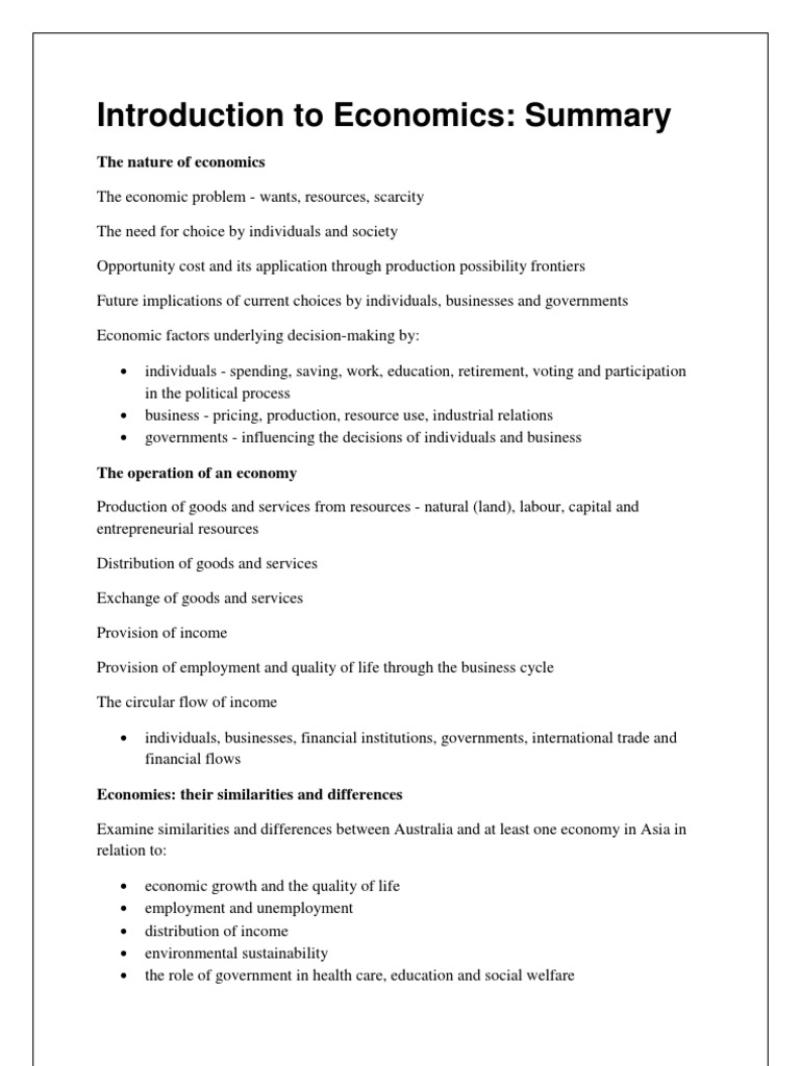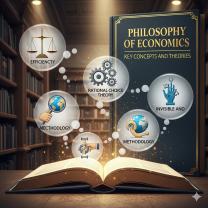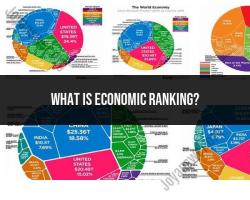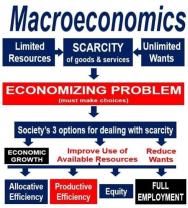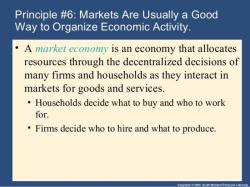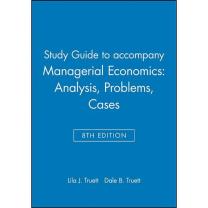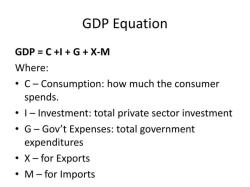What is economics summary?
Economics is the social science that studies the production, distribution, and consumption of goods and services. It involves the analysis of how individuals, businesses, and governments allocate resources to satisfy needs and wants. Here's a brief summary of key economic concepts and theories:
Scarcity:
- Resources are limited, and choices must be made. Scarcity is the fundamental economic problem.
Supply and Demand:
- The interaction between supply (quantity of a good or service producers are willing to provide) and demand (quantity consumers are willing to buy) determines prices in a market.
Opportunity Cost:
- The value of the next best alternative forgone when a decision is made. It reflects the cost of choices in terms of the next best alternative.
Marginal Analysis:
- Examining the incremental changes in benefits and costs to make decisions at the margin.
Utility:
- The satisfaction or pleasure derived from consuming a good or service.
Factors of Production:
- Resources used in the production process, including land, labor, capital, and entrepreneurship.
Production Possibility Frontier (PPF):
- A graphical representation of the maximum combinations of goods and services that can be produced with given resources and technology.
Elasticity:
- Measures the responsiveness of quantity demanded or supplied to changes in price or income.
Market Structures:
- Different market types, such as perfect competition, monopoly, oligopoly, and monopolistic competition, which affect pricing and competition.
Gross Domestic Product (GDP):
- The total value of all goods and services produced in a country within a specific time period.
Inflation:
- The rate at which the general level of prices for goods and services rises, eroding purchasing power.
Unemployment:
- The percentage of the labor force that is unemployed and actively seeking employment.
Fiscal Policy:
- Government use of taxation and spending to influence the economy.
Monetary Policy:
- Control of the money supply and interest rates by a central bank to achieve economic goals.
International Trade:
- The exchange of goods and services between countries, influenced by comparative advantage and trade barriers.
Public Goods:
- Goods and services that are non-excludable and non-rivalrous, often requiring government intervention.
Externalities:
- Unintended side effects of economic activities affecting third parties.
Game Theory:
- The study of strategic interactions among rational decision-makers.
Economic Growth:
- The increase in the production and consumption of goods and services over time.
Development Economics:
- Examines economic disparities among countries and strategies for improving living standards.
This summary provides a glimpse into the diverse field of economics, where various theories and concepts help understand and analyze economic phenomena at different levels—individual, firm, industry, and national economies.
Cracking the Code of Economics Summaries: A Guide to Clarity and Insight
Economics can be a labyrinth of intricate theories and jargon. An Economics Summary serves as your trusty torch, illuminating the key points and guiding you through the maze of complex concepts. Let's explore its essence and power:
1. The Essence of an Economics Summary:
At its core, an Economics Summary distils the essential elements of a topic or text into a concise and clear overview. It's not just a shorter version, but a thoughtful selection and reorganization of the most crucial information. It captures the main arguments, theories, evidence, and conclusions, leaving behind the unnecessary details.
2. Understanding Complex Concepts:
Imagine grappling with a dense economics textbook. An effective summary acts as a translator, breaking down complex ideas into digestible chunks. It clarifies confusing terminology, simplifies complicated models, and highlights the relationships between different concepts. By providing a structured and focused framework, it allows you to grasp the bigger picture and make sense of the nuances.
3. Key Components of an Effective Summary:
A well-crafted Economics Summary should include:
- Clear and concise language: Avoid technical jargon and complex sentence structures. Aim for directness and simplicity.
- Focus on key points: Prioritize the main arguments, evidence, and conclusions. Don't get bogged down in secondary details.
- Logical organization: Structure the summary in a way that reflects the flow of the original text. This could involve chronological order, cause-and-effect relationships, or problem-solution structures.
- Accuracy and objectivity: Ensure the summary faithfully represents the original content without personal bias or interpretation.
- Emphasis on key terms and concepts: Clearly define and explain important economic terms within the context of the summary.
4. Utilizing Summaries for Study and Revision:
Economics Summaries are powerful tools for study and revision. They can:
- Provide a quick reference point: Review key points and refresh your memory before exams or class discussions.
- Identify areas for further study: Pinpoint sections where you require deeper understanding or clarification.
- Improve memory retention: By condensing information into a manageable format, summaries enhance recollection and recall.
- Facilitate active learning: Engage with the material by creating your own summaries, connecting concepts, and asking questions.
5. Different Approaches to Effective Summaries:
There's no one-size-fits-all approach to writing summaries. Choose the method that suits your learning style and the complexity of the material. Here are some options:
- Outline method: Create a structured outline highlighting key points and sub-points.
- Mind map method: Visually represent the relationships between different concepts.
- Question-answer method: Formulate and answer key questions about the main ideas.
- Concept map method: Organize concepts and their connections using diagrams and arrows.
- Sentence or paragraph method: Condense the information into concise sentences or paragraphs.
Remember, the most effective summaries are tailored to your needs and learning goals. Experiment with different approaches and find what works best for you.
By mastering the art of Economics Summaries, you equip yourself with a powerful tool to navigate the intricate world of economic concepts. Happy summarizing!
